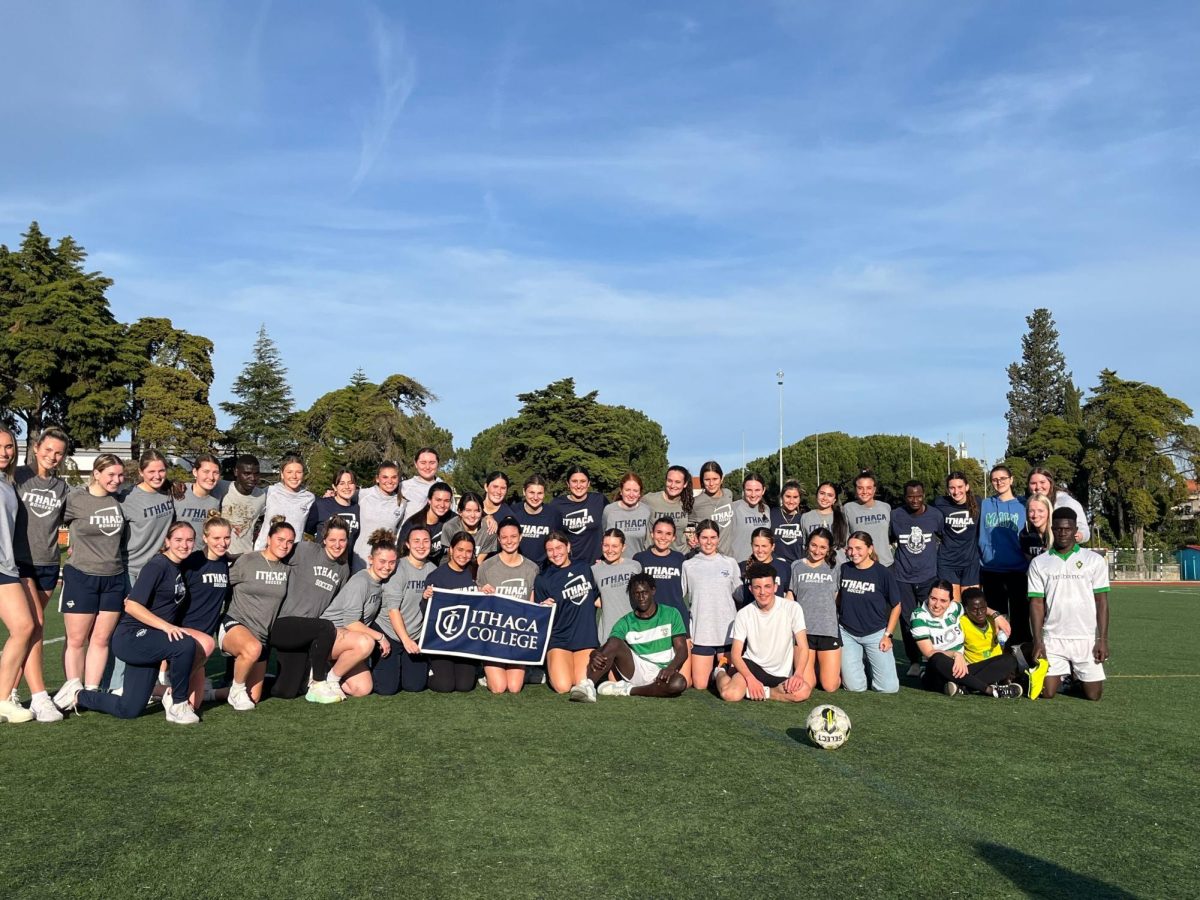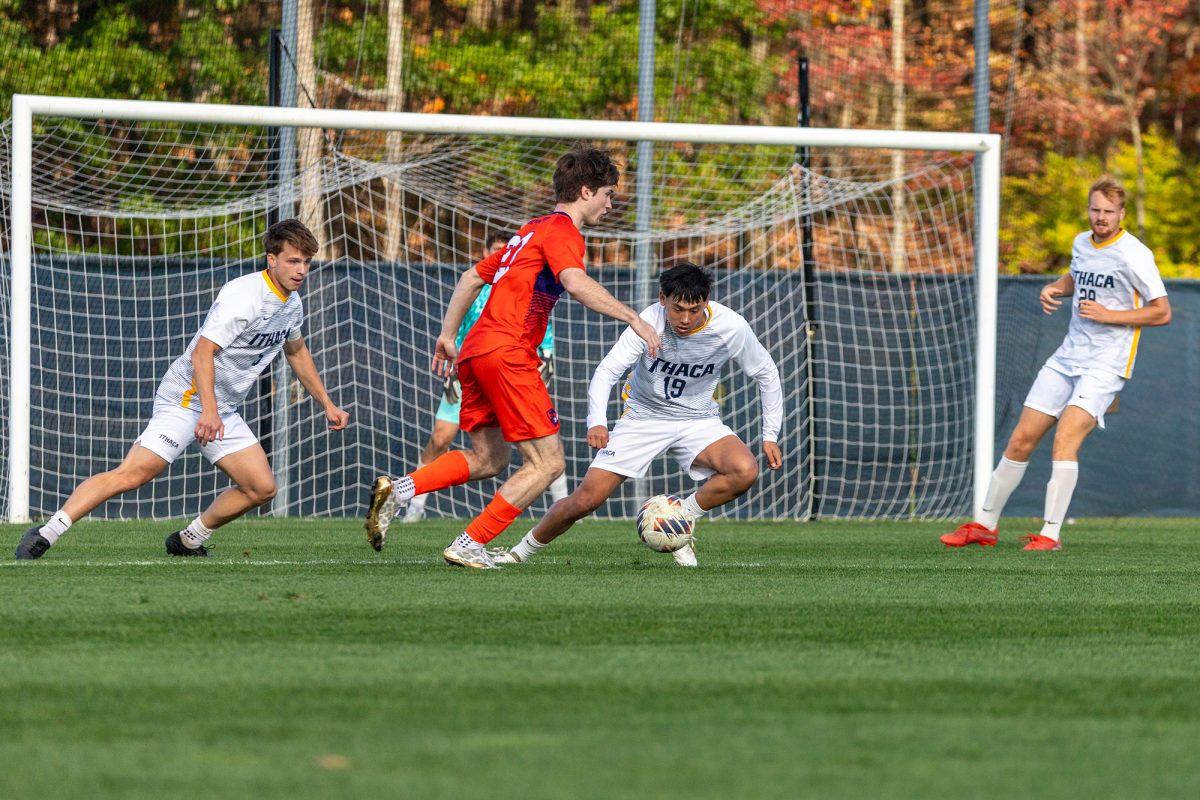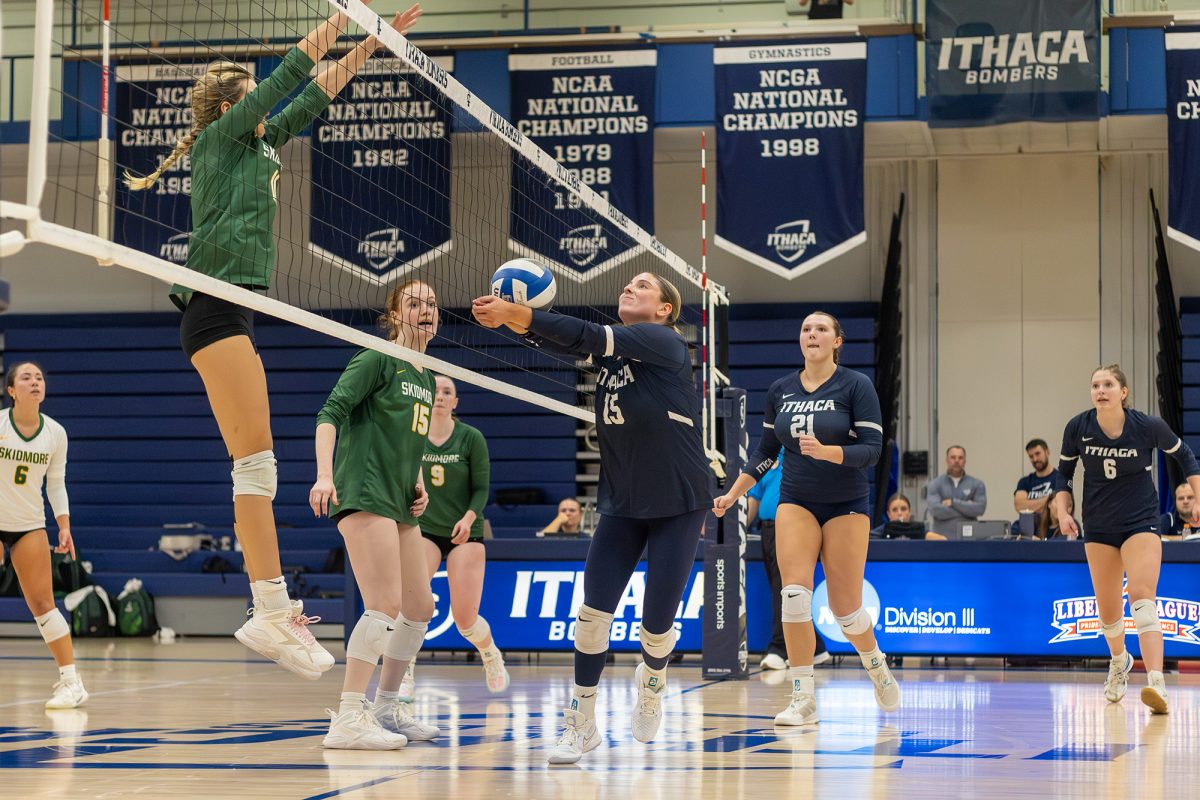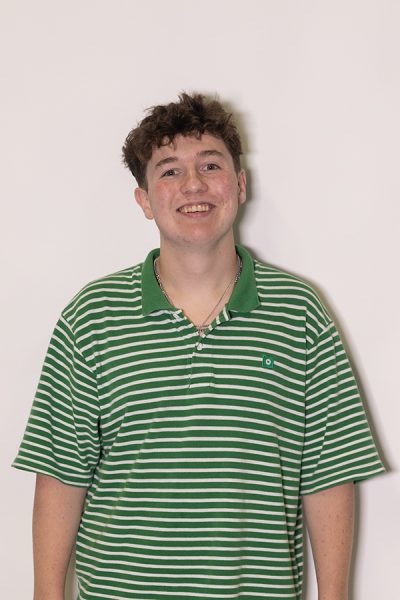Amid preparations for the upcoming season, the Ithaca College women’s soccer team went to Portugal for a week during spring break from March 10–17. They played matches, explored the country and helped out in the community.
Taking a spring break trip to another country has been a longtime tradition for head coach Mindy Quigg, who said she has been doing this trip for around 20 years and tries to take the team every four years. Over the years, Quigg has taken her teams to Costa Rica, Argentina, France, Spain and Portugal.
Quigg explained the planning process for this trip and how it came about. This year, she took the team to Porto and Lisbon and said Portugal was the first trip she took a team on. She wanted to take the team somewhere that meant something to her, as well as a location that many of the players may have not gotten a chance to see yet.
“The first trip I ever did was Portugal,” Quigg said. “I loved the country. Fell in love with it there. I just thought it’s amazing. It’s a very rich soccer country. They’ve been putting a lot of resources into their women’s programs there, which has been great.”
To pay for the trip, Quigg said she fundraised and each player paid for part of the trip themselves. Quigg said much of the alumni network helped with funding, because for many of them, the trip was a crucial learning experience while they were on the team.
Sophomore forward Kaelyn Fernandez said that the team had been discussing a trip like this, but it came all of a sudden and that the team was filled with joy when finding out.
“I don’t really remember how we were notified,” Fernandez said. “But I just know that for the longest time we’ve been talking about it, I mean like getting excited, getting all of our stuff that we want to pack and then it just came so quick.”
During the trip, the Bombers worked with the company WorldStrides to schedule three matches against different teams in Portugal. The team played clubs of all different ages and came on top in two of their games.
Junior goalkeeper Grace Hickey said it was a refreshing break from the Division III collegiate level to be able to play teams in another country during the offseason without the same competitive edge.
“I think playing against international teams gives you another perspective of where you are because you play against the same teams year after year, and it’s the same rivalries and it’s the same goals that you have, but playing internationally, we knew that these scores didn’t matter,” Hickey said. “While we wanted to win, we also wanted to play good style. We wanted to move the ball around, find feet, take good shots, find crosses. So, it was just nice to be able to play without worrying about the score, and just trying to give your individual best effort.”
Quigg described the expansive club system that takes place in Europe. She said these teams tend to have an advantage because of how much practicing they do together. During the summer and the winter, college and university teams tend to separate, however, it’s all year round in Europe.
“The club system is huge,” Quigg said. “We don’t have that in the States, you know, so, like, they have these women play in clubs in their regions. And then within that, that’s about a nine to 10-month season that they’re with their club, and then the ones that are at university are also playing for the university teams. But we’re playing with women of various ages, some from you know, maybe 17 to 18 to their 20s, into their high 20s, low 30s.”
The team got to train and practice with different coaches from the professional club S.L. Benfica. Fernandez said the level of conditioning from there was more rigorous compared to here at the college.
“We went to this field and their coaching staff kind of put us through these drills,” Fernandez said. “Even the very first thing we did was like a warmup, and everyone was kind of like, ‘Oh, my goodness. Like, this is so much more.’ … It was a really good experience. We got to hear different feedback from those coaches. And just kind of run through different drills, work on different things.”
On top of just playing soccer, Quigg brought the team adventuring, taking them to different landmarks and sites in Lisbon and Porto. She said she wanted the team to appreciate the history behind both cities.
“I also wanted them to see some of the cultural beauty there, as well as just the landscape beauty so like we had a sunset at the beach, we got to visit the famous sites that are famous for Lisbon and Porto and I wanted them to see a walled city,” Quigg said. “I wanted them to see something that was 2,000 years old and still standing and be a part of that.”
During their time in Lisbon, the team did community service and volunteer work with Global Ambassadors, a program that is opening a new center for refugee infants in Lisbon and works with refugees of all ages to get them support and education. Quigg said the Bombers worked with male refugees from countries that may not have been used to playing soccer with women in the past. It took a little for the two groups to warm up around each other, but they soon shared interest when a soccer ball was present.
“I was working with the Global Ambassadors liaison and trying to get them engaged and it was really challenging,” Quigg said. “And what made the difference was we just put the balls out and played rondos … And that was it. The whole thing changed everybody. They were communicating as best they could. They were playing, they were laughing. We moved it into an eight-sided game. Everybody had a great time. By the end, arms around each other, getting pictures. It was one ball and a good attitude.”
Going into the 2024 season, Hickey said she believes this trip bonded everyone together regardless of grade and that it will show on the field.
“I really can’t think of many flaws,” Hickey said. “I mean, a lot of people who’ve never been to Europe got to experience it, which is absolutely incredible. It brought us closer together throughout our grades. … It really just brought everyone together and a lot of other people to step outside their comfort zones, experience new culture, new foods, learn a new language. And I think it will translate to our play, just the relationships that we formed with each other and the trust that we built on that trip, it’s gonna make it easier for us to connect on the field.”















